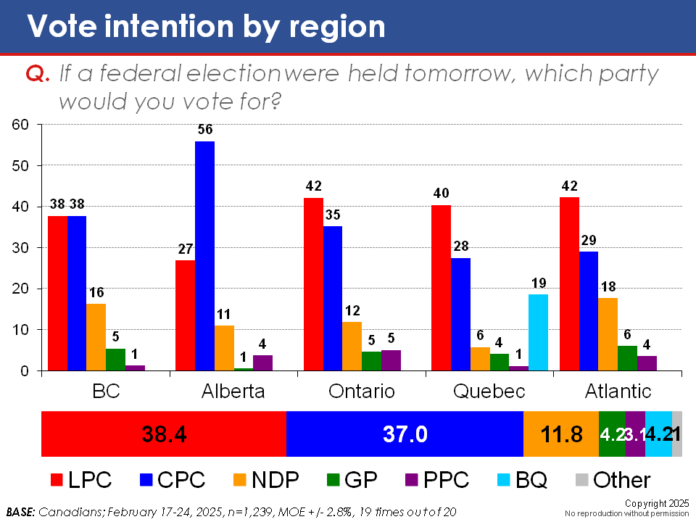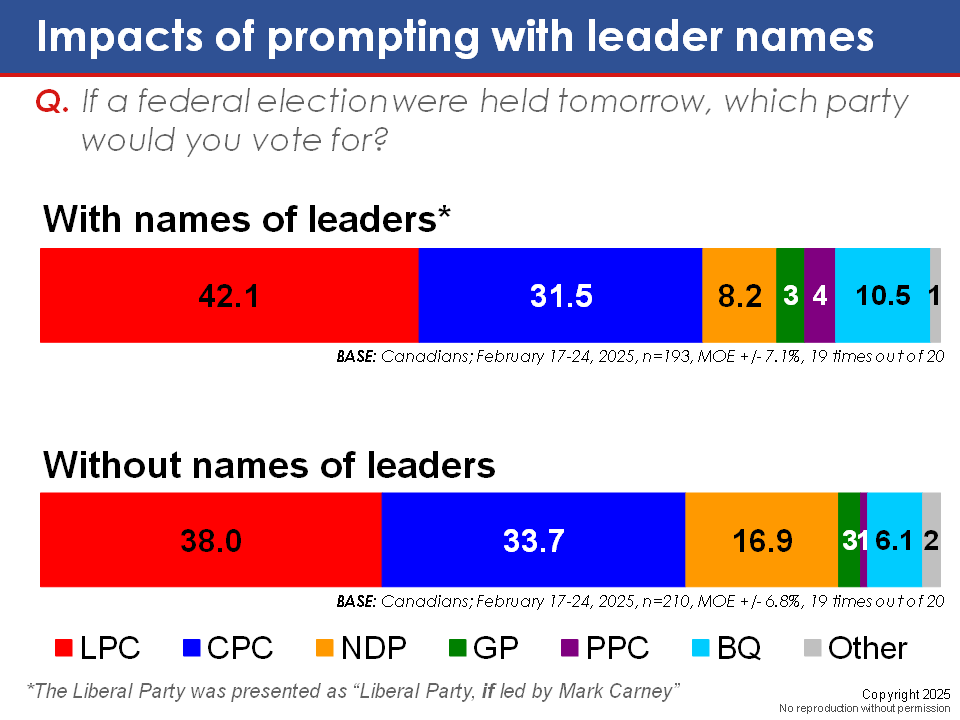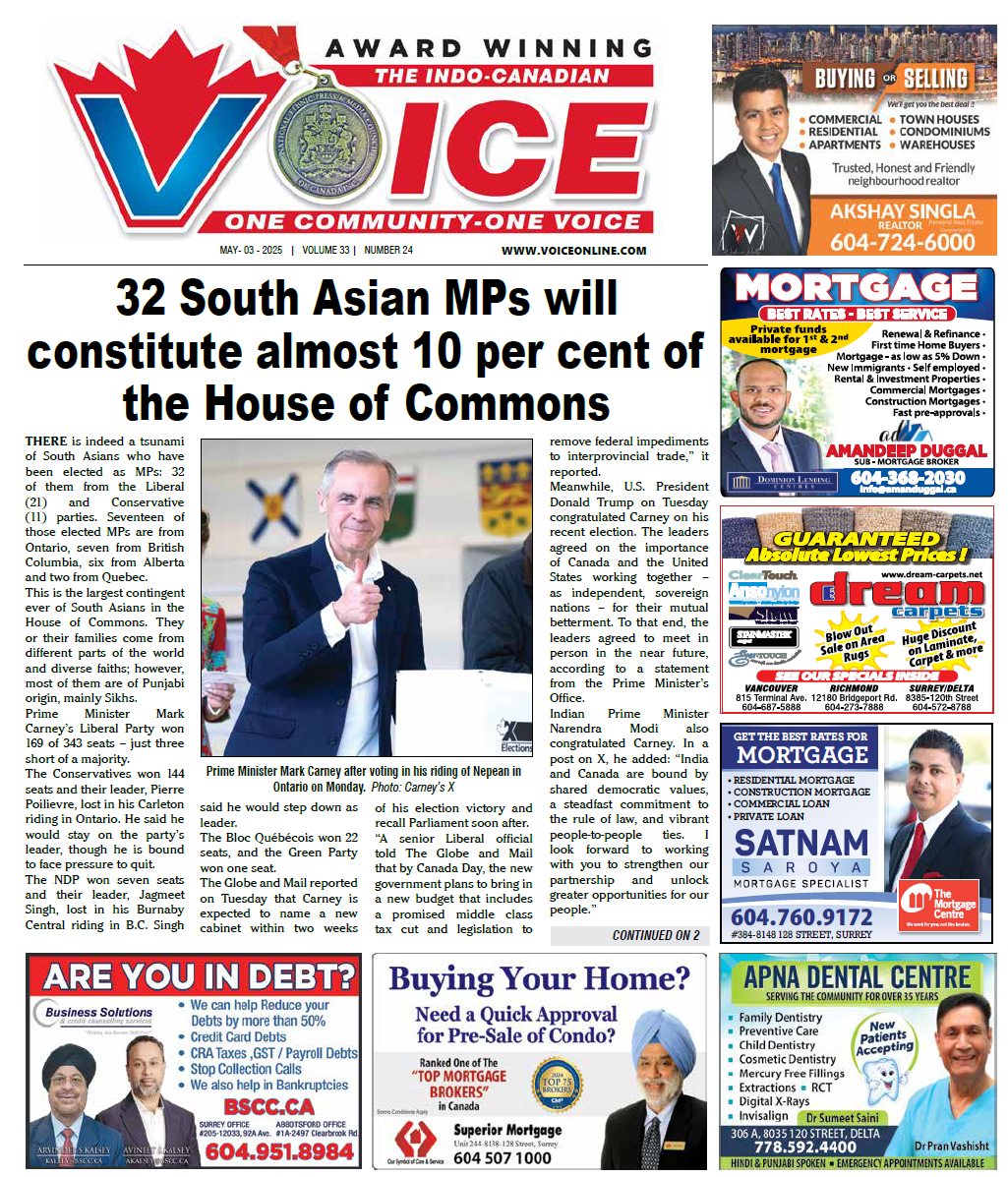THE federal Liberal Party has edged ahead of the Conservative Party for the first time since May 2022 – albeit by a statistically insignificant margin, according to an EKOS Politics survey from February 17-24.
At 38 and 37 points, respectively, the Liberals and Conservatives are in a virtual tie; however, the underlying regional dynamics would favour the more seat-efficient Liberal vote if an election were held tomorrow.
Meanwhile, the NDP sits at 12 per cent nationally, struggling to stay afloat in what is increasingly a two-way race.
Crucially, the Liberals enjoy a seven-point lead in seat-rich Ontario. In Quebec, the Bloc Québécois vote has collapsed, as progressive voters appear to have rallied under the Liberal banner under the persistent threats of tariffs and annexation from the south, giving the Liberals a 12-point lead in the province.
The party also leads in Atlantic Canada and finds itself neck-and-neck with the Conservatives in British Columbia. The Conservatives, meanwhile, are poised to utterly sweep Alberta but their over-concentration of support in the province would limit their seat gains under Canada’s first-past-the-post system.
Results are sharply divided by gender; the Conservatives enjoy an 18-point lead with men, while the Liberals hold a 23-point lead among women. Indeed, the two voting blocs are near mirror images of each other.
The Conservatives lead among Canadians under 50, while Liberal support rises with age and the party leads with those over 50. The Liberals have a huge lead with university graduates, but trail badly among the college and high-school educated.
Lastly, EKOS Politics conducted a random controlled experiment where it presented respondents with two versions of the vote intention question: 1) the standard vote intention question that prompts respondents with just the name of each party; and 2) a version that prompts respondents with the name of each party leader (or Mark Carney in the case of the Liberal Party). While the results should be interpreted with the small sample sizes in mind, they reveal a significant four-point boost for the Liberal Party at the mention of Mark Carney.
NDP support, plummets nearly nine points at the mention of Jagmeet Singh.
The Conservative vote holds steady regardless of whether Pierre Poilievre’s name appears, while the Bloc Québécois enjoys a four-point bump when Yves-François Blanchet is mentioned.
In total, a random sample of 1,239 Canadians aged 18 and over responded to the survey. The margin of error associated with the total sample is +/- 2.8 percentage points, 19 times out of 20. The margin of error increases when the results are sub-divided (i.e., error margins for sub-groups such as region, sex, age, and education). All the data have been statistically weighted by age, gender, and region to ensure the sample’s composition reflects that of the actual population of Canada according to Census data.
READ ALSO:














